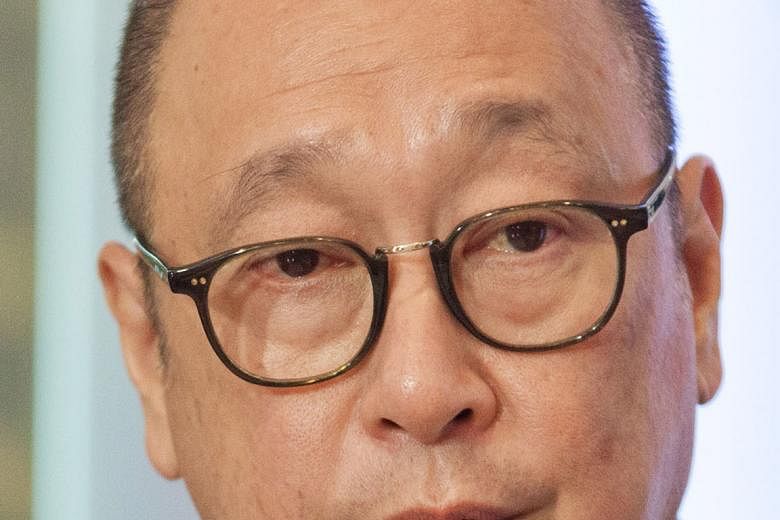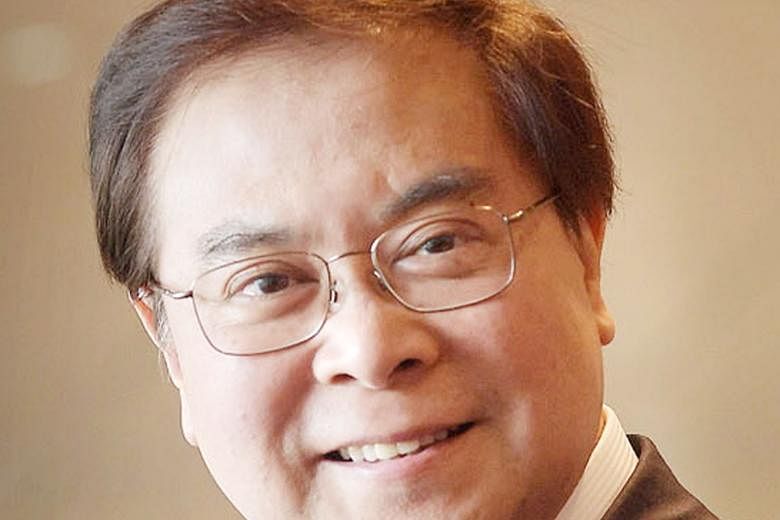The total pay of local bank bosses was slashed last year due to lower bonuses, amid an uneven business environment.
The annual remuneration of the chief executives comprises their basic salary, bonuses and various share rewards.
About $1 million each was cut from the bonuses paid to the bosses of DBS Bank, OCBC Bank and United Overseas Bank (UOB) last year.
The highest-paid chief executive was DBS' Mr Piyush Gupta. His total remuneration was $8.44 million for last year, compared with $10.94 million for 2015. Included in the package was his bonus, which came down from $4.12 million to $3.12 million last year.
UOB's Mr Wee Ee Cheong got a total pay of $8.42 million, down from the $9.22 million he got in 2015. Most of his pay package came from his bonus, which fell from $8 million to $7.2 million.
At OCBC, Mr Samuel Tsien's total remuneration was $8.38 million, down from $10.49 million a year earlier. His bonus dropped from $5.51 million to $4.25 million.
-
ANNUAL REMUNERATIONS
-

DBS' Piyush Gupta
$8.44m
UOB's Wee Ee Cheong
$8.42m
OCBC's Samuel Tsien
$8.38m
Other senior figures also got less last year. For instance, DBS non-executive chairman Peter Seah was paid $1.25 million in fees, down from $1.27 million in 2015. Separately, the value of his non-cash benefits - including a car and driver - fell from $52,263 to $51,212.
OCBC chairman Ooi Sang Kuang's remuneration fell 26 per cent from $2.211 million to $1.637 million as he took a substantial cut in fees. OCBC said he volunteered to receive lower fees in view of the difficult economic environment.
The less generous payouts are not surprising as the sector endured a bumpy year of lower earnings and massive bad debt allowances, Maybank Kim Eng analyst Ng Li Hiang told The Straits Times.
Full-year earnings at DBS for last year was $4.24 billion, down 5 per cent from 2015. OCBC's earnings were 11 per cent lower at $3.47 billion, while UOB reported a 3.5 per cent drop to $3.1 billion.
The main culprit was the money the banks had to put aside as allowances for non-performing loans, the bulk of which stemmed from the struggling oil and gas sector.
This was compounded by slow loans growth, as the market's appetite for credit shrank due to choppy economic conditions.
Against this backdrop, managing staff cost was a key task last year. DBS's underlying headcount fell by 300 last year, while UOB's permanent workforce dropped from 24,092 in 2015 to 23,904 last year.
But the three banks are unlikely to lower their typically stable dividends, said Ms Ng. She said the banks should also face less non-performing loans issues ahead.
"The provisions will remain elevated but the hit may not be as bad as the risky (non-performing) names are already provided for. If Singapore's economy recovers, then we can see a more positive outlook."
February bank loans increased 5.2 per cent year on year, the fastest in more than two years, while private sector economists' estimates for Singapore's economic growth this year were recently revised up to 2.3 per cent from the previous forecast of 1.5 per cent.

